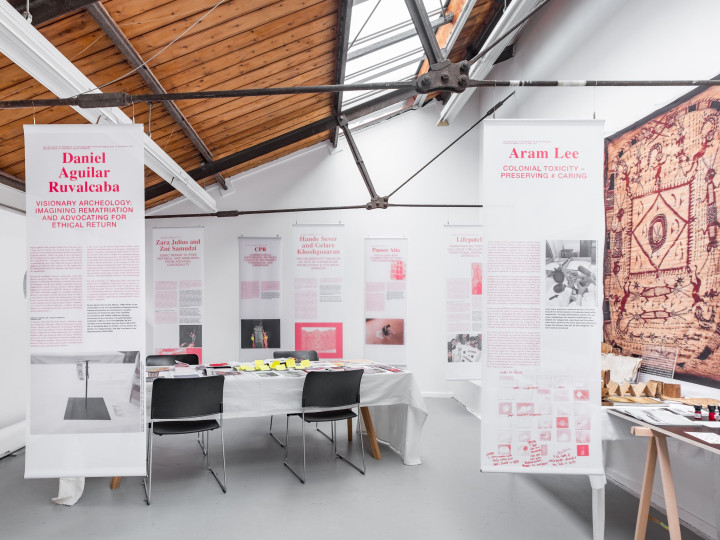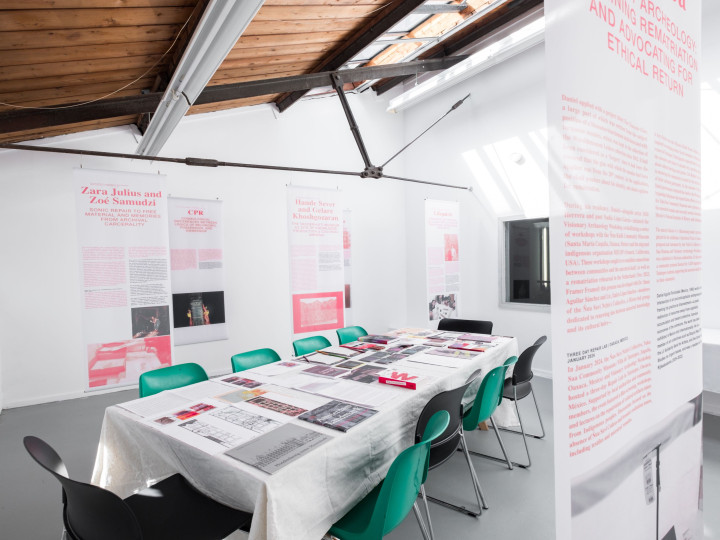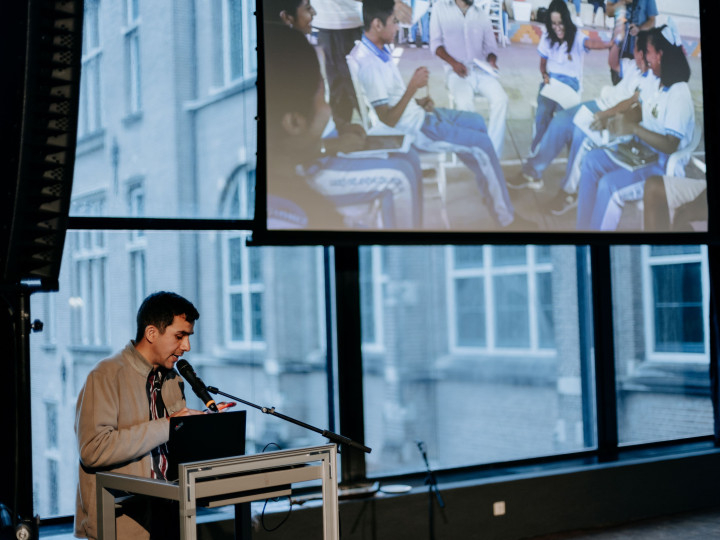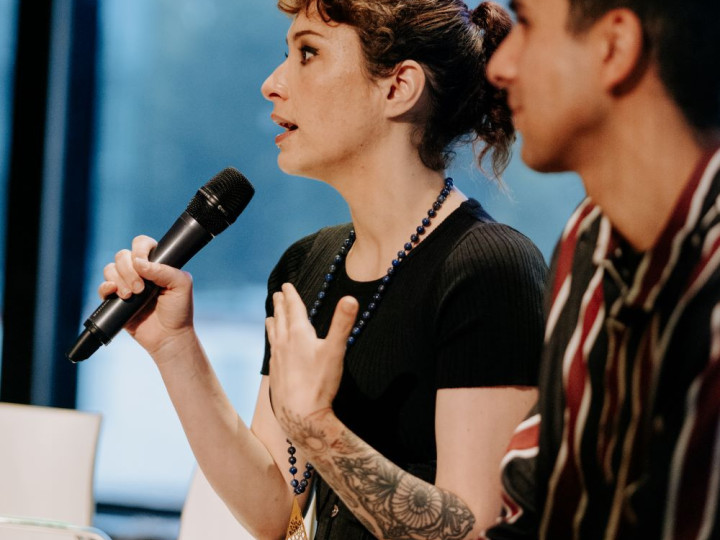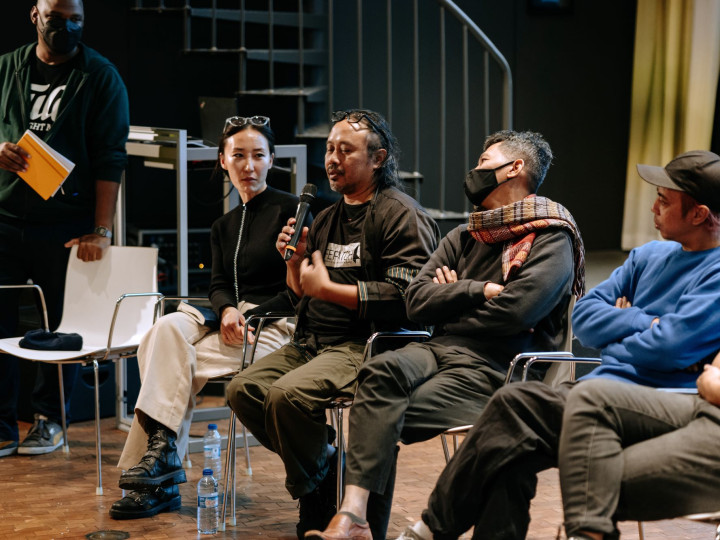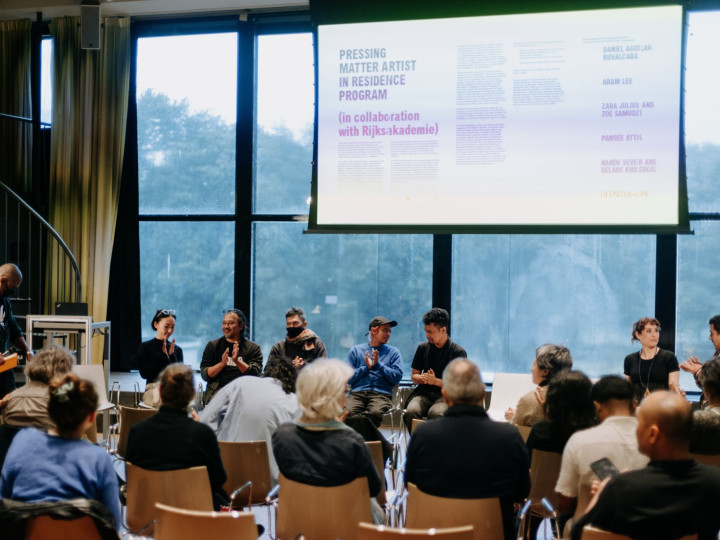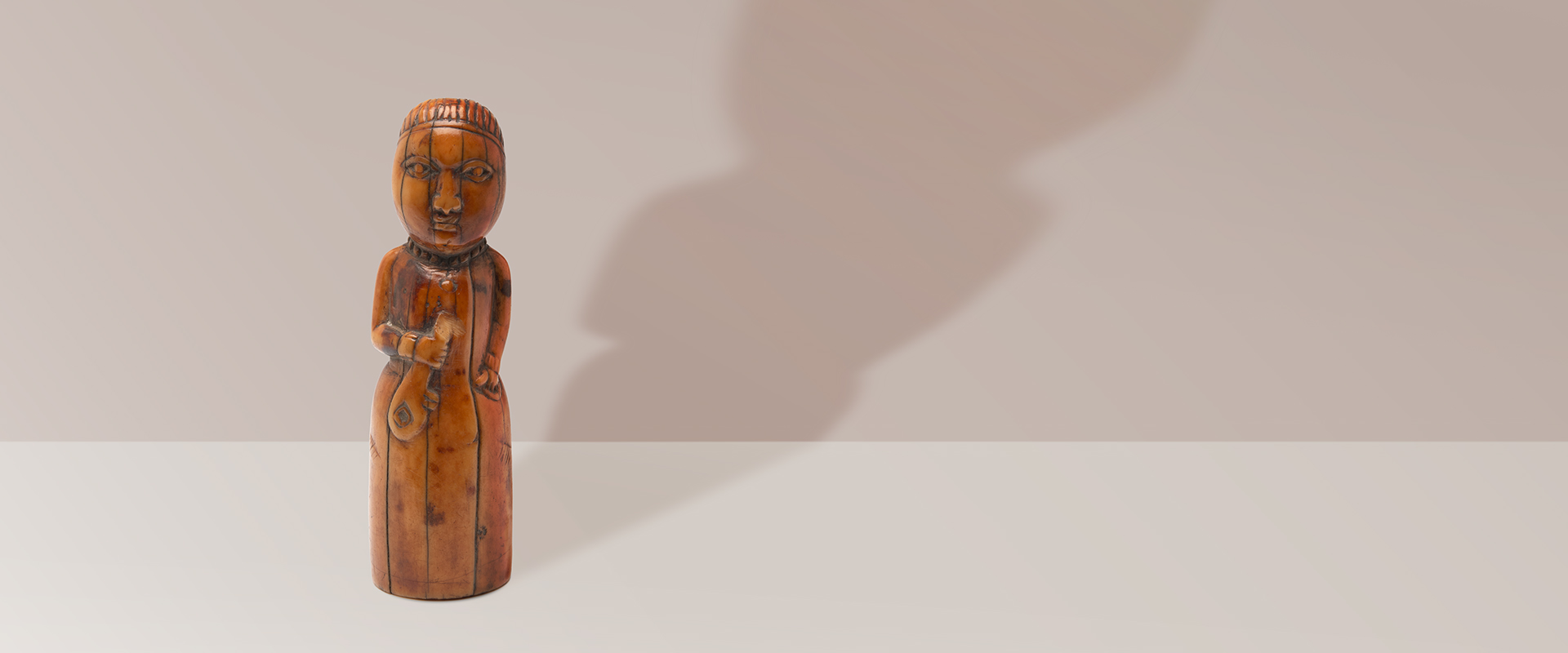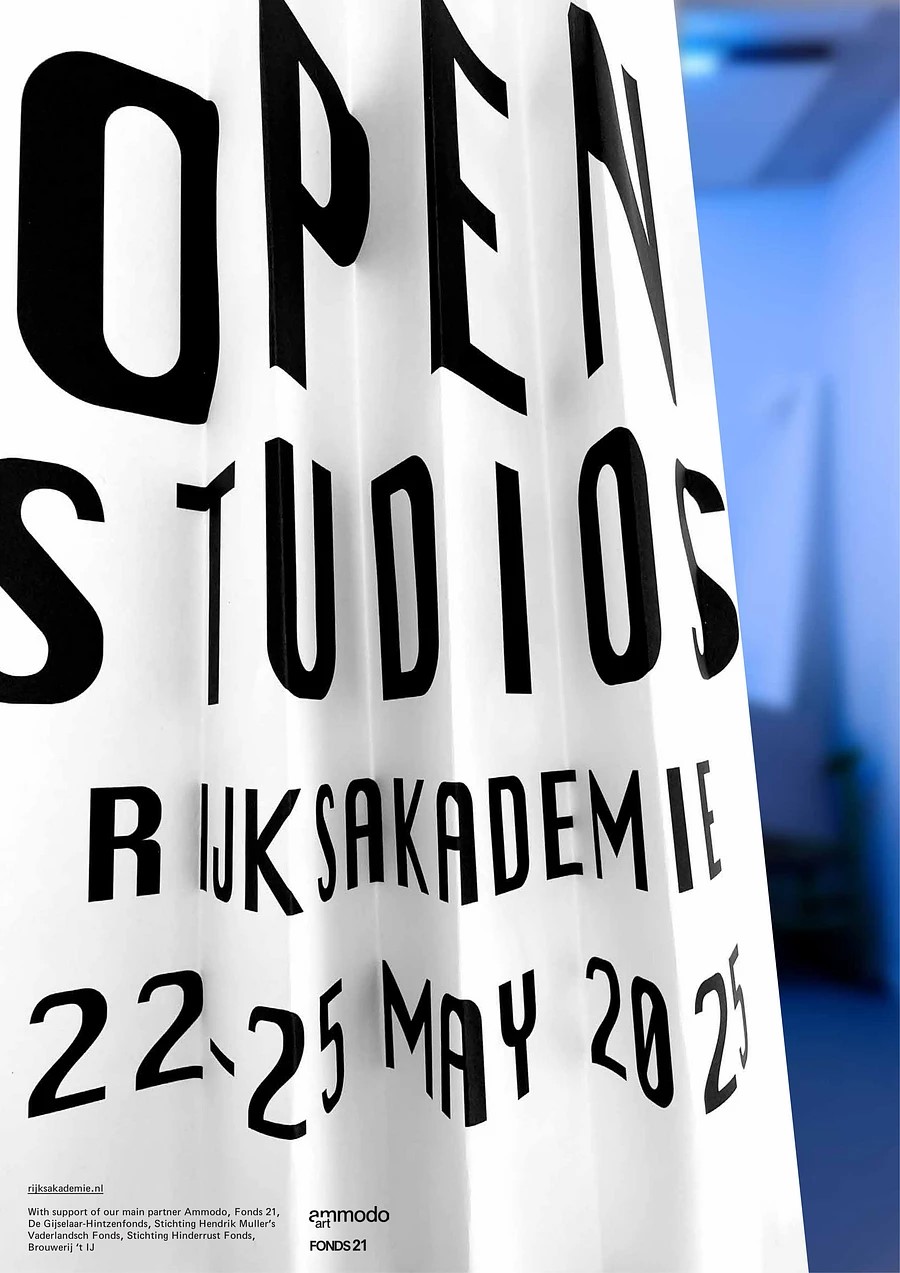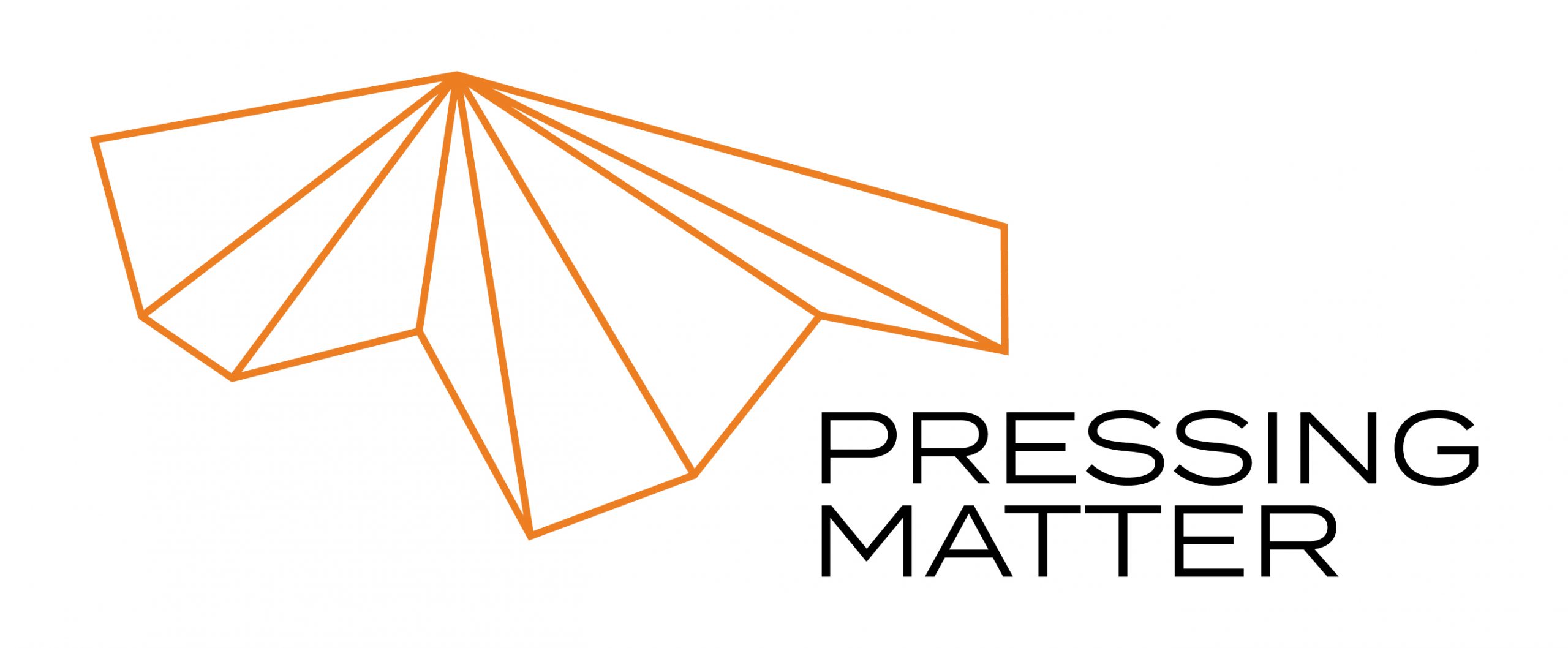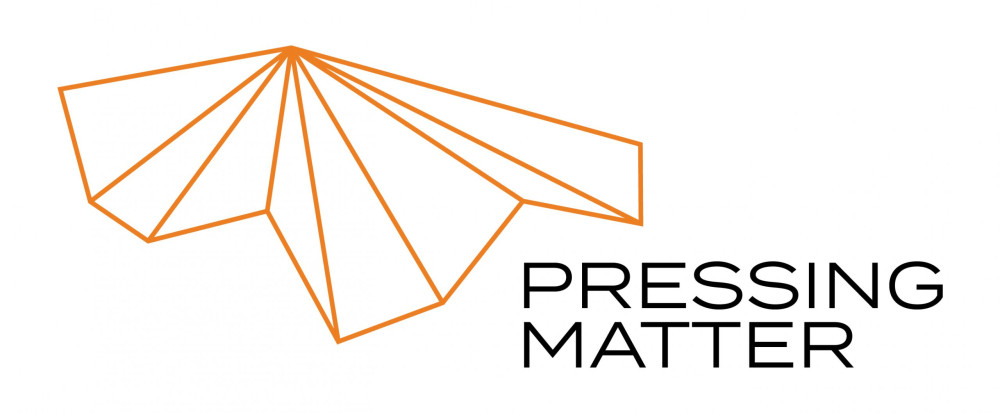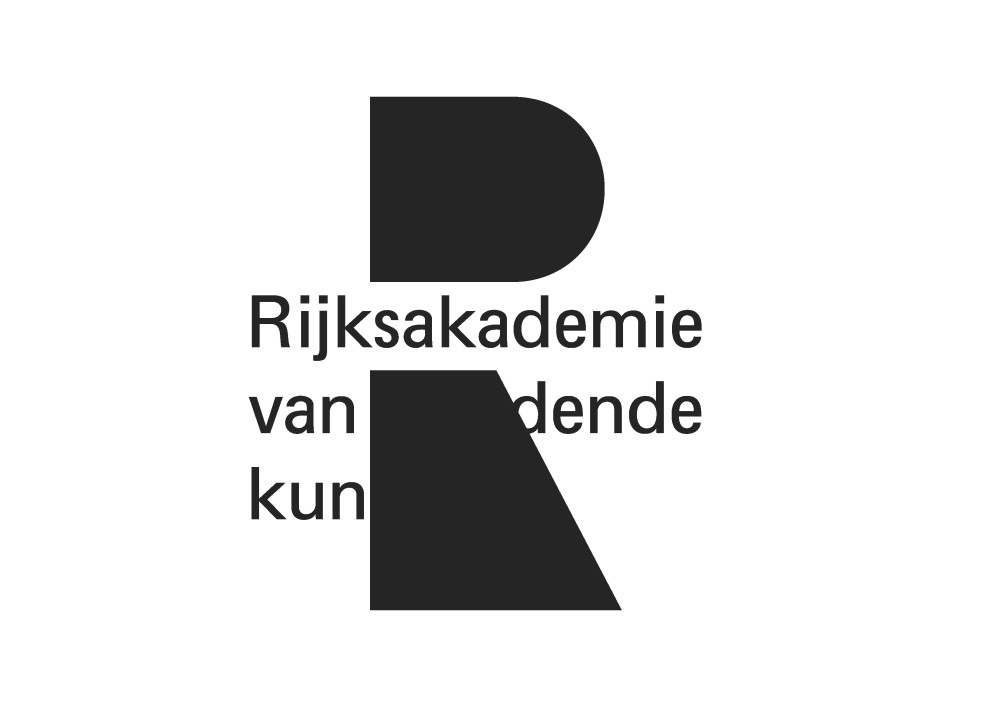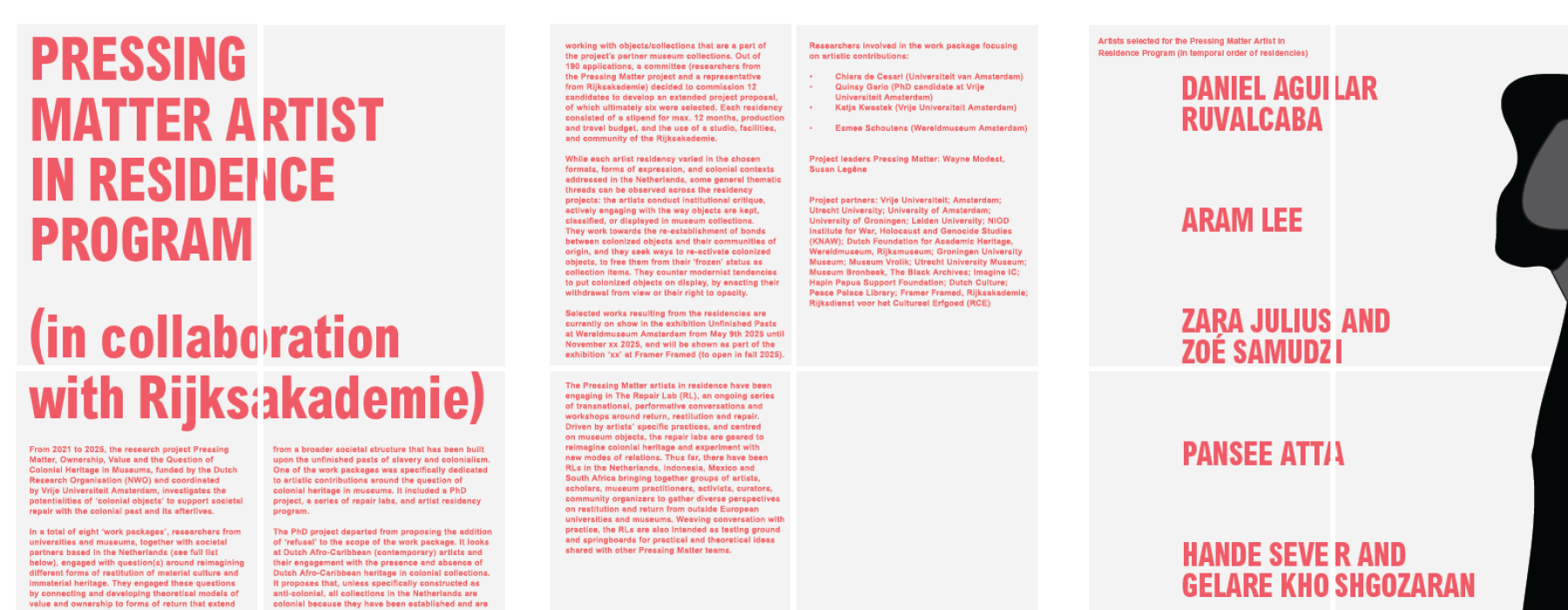
Confirmed speakers include:
- Aram Lee
- Pansee Atta
- Daniel Aguilar Ruvalcaba
- Lifepatch & Kawan Pustaha
Moderator: Quinsy Gario
Prior to the panel discussion, Lifepatch collective will hold a ritual performance of Arus Balik. The performance will combine the traditional Batak ritual of anggir drinking with a live demonstration of writing a pustaha on laklak (sacred wood).
Audience entry into the museum + brief visit to the exhibition: 13.30
Start of program/welcome words by Quinsy Gario and Ilaria Obata: 14.00 – 14.10
Ritual performance by Lifepatch collective: 14.10 - 14.30
Presentations by Lifepatch collective: 14.35 – 14.45
Presentation by Aram Lee: 14.45 – 14.55
Presentation by Pansee Atta: 14.55 – 15.05
Presentation by Daniel Aguilar Ruvalcaba: 15.05 – 15.15
Panel discussion: 15.25 – 15.55
Q&A with audience: 15.55 – 16.15
- End of program: 16.30
